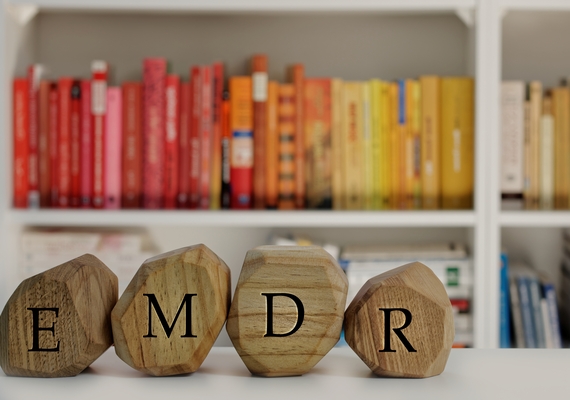Integrative Psychotherapy


Integrative therapy is a combined approach to psychotherapy that brings together different elements of specific therapies. Integrative therapists take the view that there is no single approach that can treat each client in all situations. Psychological therapy is tailored to the individuals' needs and therapy goals.
We provide short or long term psychotherapy for all adults (18+). Shires Psychotherapy is strongly committed to equality, diversity and inclusion.
After making the initial contact, we will arrange a mutually convenient time for an initial consultation which carries no obligation to continue. This session will give you an opportunity to get a sense of how I work as well as for us to gain a deeper understanding of the difficulties you are experiencing. It will also give you an opportunity to decide whether the therapist is right for you, one of the most important elements of successful therapy.
Therapies
Cognitive Behavioural Therapy
Cognitive Behavioural Therapy (CBT) combines two different approaches for a practical and solution-focused therapy. The therapy is very active by nature, you may be expected to take a proactive role within your treatment, which may include completing tasks at home. The idea behind CBT is that our thoughts and behaviours have an effect on each other and by changing the way we think or behave in a situation, we can change the way we feel about life. The therapy examines learnt behaviours, habits and negative thought patterns with the view of adapting and turning them into a positive.
CBT has become one of the most popular forms of psychological therapy. It is recommended by the National Institute for Health and Care Excellence (NICE) for common mental health difficulties, such as depression and anxiety, trauma, panic disorder, OCD, and eating disorders.


Acceptance and Commitment Therapy
Acceptance and Commitment Therapy (ACT) takes the view that through acceptance individuals can choose a valued direction in which to take action and make positive changes. In this way, ACT does not aim to directly change or stop unwanted problems and experiences. Instead it promotes individuals to develop a mindful relationship with them, promoting a psychological flexibility that encourages healthy contact with thoughts, reconnection with the here and now, realisation of personal values, and commitment to behaviour change. ACT can be beneficial for a wide range of individuals. The empowering message of the approach - to alter the function rather than the existence of unpleasant thoughts and feelings makes it particularly useful in helping clients to cope with problems such as anxiety, depression, OCD, trauma, substance abuse, eating disorders and chronic health conditions.
Compassion-Focussed Therapy
Compassion-Focused Therapy (CFT) looks to help those who struggle with shame and self-criticism. Often these can be the driving forces behind other mental health conditions like anxiety and depression. It is considered an integrative therapy as it uses tools and techniques from other psychotherapies. The primary technique used is called Compassionate Mind Training (CMT). This aims to help people experience compassion and develop non-condemning attributes. CFT is particularly helpful for those who have the following; deep feelings of shame or guilt, a history of bullying, a history or physical or emotional abuse, an unrelenting inner critic, difficulties trusting, difficulties (or an inability) to feel kind towards themselves. It can therefore be helpful for those with the following mental health challenges; anxiety, depression, self-esteem issues, self-criticism and anger.


Dialectical Behaviour Therapy
Dialectical Behaviour Therapy (DBT) is based on Cognitive Behavioural Therapy (CBT), but specifically adapted for people who feel emotions very intensely. The aim of DBT is to help you understand and accept your difficult feelings, learn skills to manage them and become able to make positive changes in your life. ‘Dialectical’ means trying to understand how two things that seem opposite could both be true. For example, accepting yourself and changing your behaviour might feel contradictory. DBT promotes that it is possible for you to achieve both these goals together.

Mindfulness-Based Therapies
As humans, we have a tendency to work on autopilot a lot of the time, completing tasks automatically without really giving them any thought. Consider your drive to work in the morning, are you thinking about changing gears and steering, or are you mentally planning the day ahead?
Mindfulness aims to reconnect us with ourselves to alleviate stress. It also helps us to feel more attuned with our emotions and generally more aware of ourselves both mentally and physically. It is a specific way of paying attention to what is happening in our lives in the present moment, as it truly is. Of course it won't eliminate life's pressures, but with practice it can help us take notice of habitual reactions to everyday stress. The most common way this technique is practiced is through mindfulness skills and exercises.
Eye Movement Desensitisation and Reprocessing
Eye Movement Desensitisation and Reprocessing (EMDR) is a form of therapy that utilises Bilateral Stimulation (BLS) usually in the form of eye movements, tapping or auditory tones in order to accelerate the brain’s capacity to process and heal a troubling memory, thought, feeling, or phobia. BLS stimulates the same eye movements which occur during Rapid Eye Movement (REM) or dream sleep. BLS causes two parts of the brain to work in conjunction in order to reintegrate a memory. The memory or event is remembered, but painful emotions, physical sensations and disturbing images/thoughts are no longer present.
EMDR is a treatment approach that has been widely validated by research for the treatment of PTSD, and a range of other mental health conditions including anxiety disorders, depression, addictions, phobias, behavioural difficulties, complicated grief and chronic pain.

Schema Therapy
Schema Therapy is an integrative approach to therapy that combines the best aspects of cognitive-behavioural, experiential, interpersonal and psychoanalytic therapies into one model. The schemas that are targeted in treatment are enduring and self-defeating patterns that typically begin early in life. These patterns consist of negative/dysfunctional thoughts and feelings, have been repeated and elaborated upon, and pose obstacles for accomplishing one's goals and getting one's needs met. Some examples of schema beliefs are: "I'm unlovable”, "I'm a failure”, "People don't care about me”, "I'm not important”, "People will leave me” etc. The goal of schema therapy is to help you break these ways of thinking, feeling and behaving, and replacing them with healthier alternatives.

Attachment Based Psychotherapy
From birth, we develop a close bond with our main caregivers (usually our parents). This attachment helps us to learn and develop in a trusting environment, even at such a young age, we know our parents will be there for us. However, strong and ‘secure’ attachments are not always made and in these cases, the security and safety element associated with parents is lost. This can make it difficult for the child to deal with new experiences and form relationships. Not forming this bond can lead to a set of behavioural and emotional difficulties which can affect development and lead to mental health issues later in life.
For adults who never addressed their attachment difficulties, psychotherapy can be incredibly beneficial. It offers space to explore losses, gain a sense of closure and learn how to create bonds as an adult (if this is a problem). This can all help adults with attachment difficulties build better relationships with friends, partners and their own children.


Relationship Therapy
Couples seek relationship psychotherapy for many reasons, such as, to resolve ongoing relationship difficulties, work through recent conflicts, help with intimacy within the relationship and address relationship dynamics.
This approach is integrative, blending systemic, object relations, Transactional Analysis and Gestalt theories.
'The curious paradox is that when I accept myself just as I am, then I can change'
Carl Rogers
What therapy can help with
Anxiety
Depression
Physical Health Issues (Cancer, Chronic Fatigue Syndrome/ME, Persistent Pain, Diabetes, Long-Covid)
Stress
Obsessive Compulsive Disorder (OCD)
Trauma
Adjustment to Life Events
Childhood Experiences
This list is not exhaustive so please contact us for more information

What psychological therapy can help with
Anxiety
Depression
Physical Health Issues (Cancer, Chronic Fatigue Syndrome/ME, Persistent Pain, Diabetes, Long-Covid)
Stress
Obsessive Compulsive Disorder (OCD)
Trauma
Adjustment to Life Events
Childhood Experiences
This list is not exhaustive so please contact us for more information

